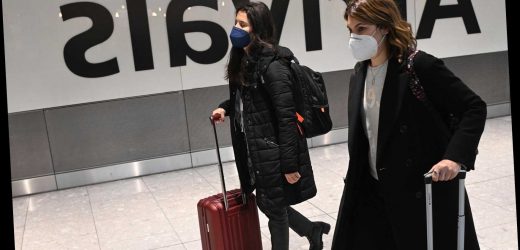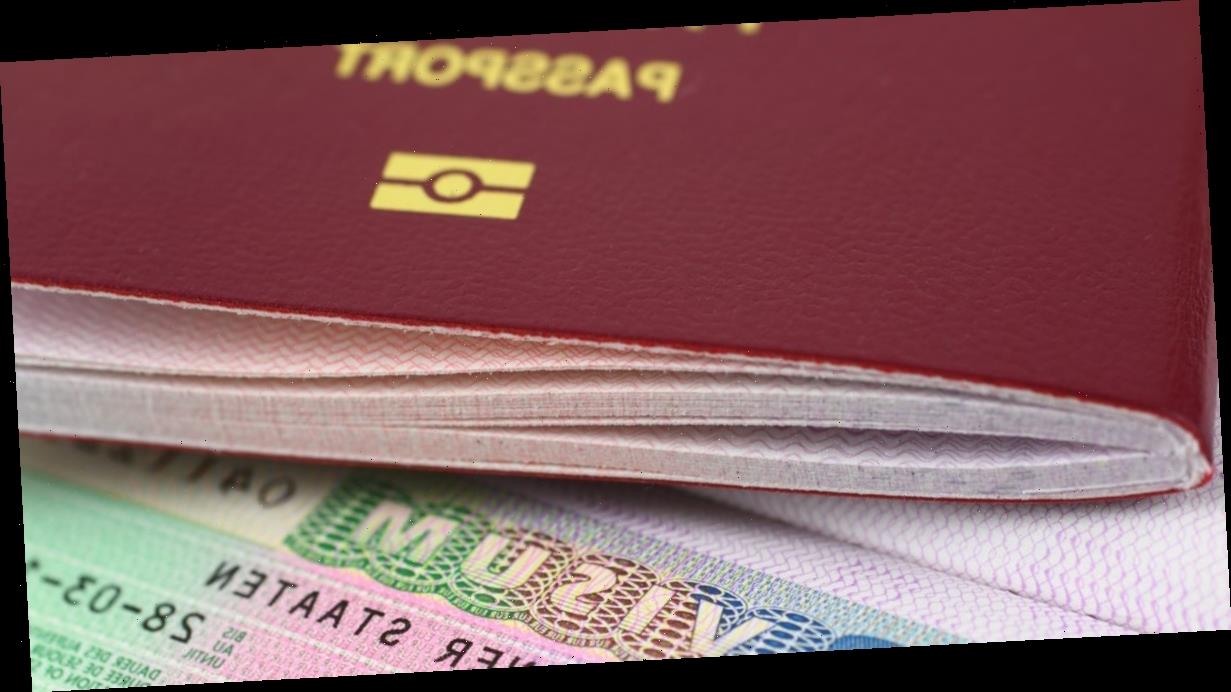BRITS are still able to travel to most countries in the world although tight restrictions are in place.
Boris Johnson though has closed all the travel corridors from January 18 meaning people will have to isolate for ten days or face the possibility of being fined.
⚠️ Read our coronavirus live blog for the latest news & updates
Where can I travel to from the UK?
A number of European countries have placed travel restrictions on Brits entering their country, according to the travel site Wanderlust.
- Austria: All flights from the UK are banned until 24 January.
- Azores: Travellers from the UK are not allowed to enter Portugal, including Azores, unless for essential reasons. The UK has banned travel from Portugal, meaning any UK nationals arriving in the UK from Portugal will have to self-isolate upon return.
- Belgium: Those from the UK will now only be able to enter Belgium for essential reasons.
- Bulgaria: Those travelling from the UK will now only be able to enter Bulgaria for essential reasons.
- Croatia: Those from the UK are not permitted to enter Croatia.
- Czech Republic: Only those who are Czech citizens or long-term residents are allowed to enter the Czech Republic from the UK.
- Denmark: Most people in the UK are now not allowed to enter Denmark. There are exceptions for primary caregivers for children under 18, family members of someone who is seriously ill or dying in Denmark and freight transporters.
- Finland: Finland has suspended passenger flights from the UK until 18 January.
- Georgia: UK citizens are not permitted to enter Georgia.
- Germany: UK travellers can only enter Germany if they are residents or for essential reasons.
- Hungary: Hungary has closed its borders to most foreign nationals including those from the UK. You may be able to enter for essential reasons.
- Iceland: Travel to and from the UK is not permitted unless it is for an essential reason.
- Italy: UK travellers can only enter Italy if they have an official Italy residence or if it is an absolute necessity to travel.
- Latvia: All flights between the UK and Latvia are suspended.
- Liechtenstein: Travellers from the UK are not permitted to enter Liechtenstein unless they are a Liechtenstein or Swiss citizen, have a Swiss residence permit or type D visa, or hold a 'laisser passer'.
- Luxembourg: All flights between Luxembourg and the UK have been banned.
- Madeira: Those from the UK are not permitted to travel to Portugal, including Madeira, except for essential reasons. The UK has banned travel from Portugal, meaning any UK nationals arriving in the UK from Portugal will have to self-isolate upon return.
- Malta: Unauthorised travel from the UK to Malta is not permitted. Maltese nationals and those with resident permits are allowed to return to Malta but will need to self-isolate for 14 days. Those wanting to travel for an essential reasons needs permission from the Superintendent of Public Health.
- Moldova: Flights will resume from midnight on 8 January. All travellers from the UK will need to self-isolate for 14 days.
- Netherlands: UK nationals are not allowed to enter the Netherlands.
- Norway: UK nationals are not allowed to visit Norway unless they meet certain exceptions.
- Portugal: Portugal are restricting travel to and from the UK with the exception of Portuguese citizens and legal residents. Contact your travel operator if you were due to travel to Portugal. The UK has banned travel from Portugal, meaning any UK nationals arriving in the UK from Portugal will have to self-isolate upon return.
- Romania: UK nationals and those resident in the UK are not allowed to enter Romania.
- Russia: Flights from the UK to Russia are suspended until at least 1 February.
- Switzerland: Those in the UK cannot travel to Switzerland unless they are a Swiss or Liechtenstein citizen, have a Swiss residence permit or type D visa, or holds a 'laisser passer'.
- Slovakia: UK travellers are not permitted to enter Slovakia unless it's for essential reasons.
- Spain: Travel to Spain from the UK is restricted until 19 January.
- The Canary Islands: Travel to the Canary Islands from the UK is restricted until 19 January.
- Sweden: There is a travel ban in place which means those from the UK cannot enter Sweden unless they are exempt.
When do the new UK travel restrictions come into force?
Prime Minister Boris Johnson has announced all travel corridors will be axed from January 18 from 4am.
This means anyone coming into the country from 4am on Monday will be ordered to isolate for 10 days – but people can still get a test on day 5 to be released.
The move was done to "take additional steps to stop those strains from entering" the country.
The PM said: “We are making such progress with the vaccine. What we don’t want is all that hard work undone by the arrival of a new variant that is vaccine-busting.
"It is vital to toughen restrictions now when day by day, hour by hour we are making such strides in protecting the population.”
The move will come in across all four corners of the UK, so all the rules will be the same.
How long will the new travel restrictions be in place for?
There is no time limit on how long the new restrictions will last for.
There will be more spot checks to ensure people are remaining in self-isolation, too – and anyone caught out faces a £1,000 fine.
Many other countries have had testing at borders since last summer, but UK ministers have said it wasn't needed.
Already Brits are banned from going on holiday thanks to the national lockdown – and should only be travelling for work or essential reasons anyway.
Can I still return home if I'm currently abroad?
Yes, but the news will spark a scramble for Brits abroad to get back home before the extra quarantine rules kick in on Monday morning.
The Prime Minister said last: "If you come to this country you must have proof of negative Covid tests that you have taken in the 72 hours before leaving, and you must have filled in a passenger locator form. The airline will ask for proof of both.
"Upon arrival you must quarantine for 10 days not leaving for any reason, or take a test on day 5 and wait for proof of negative result."
Joss Croft, chief executive of inbound tourism body UKinbound, said: "Consumer safety is paramount and although the removal of all travel corridors is regrettable, given the current trajectory of the virus it's an understandable decision."
Source: Read Full Article






